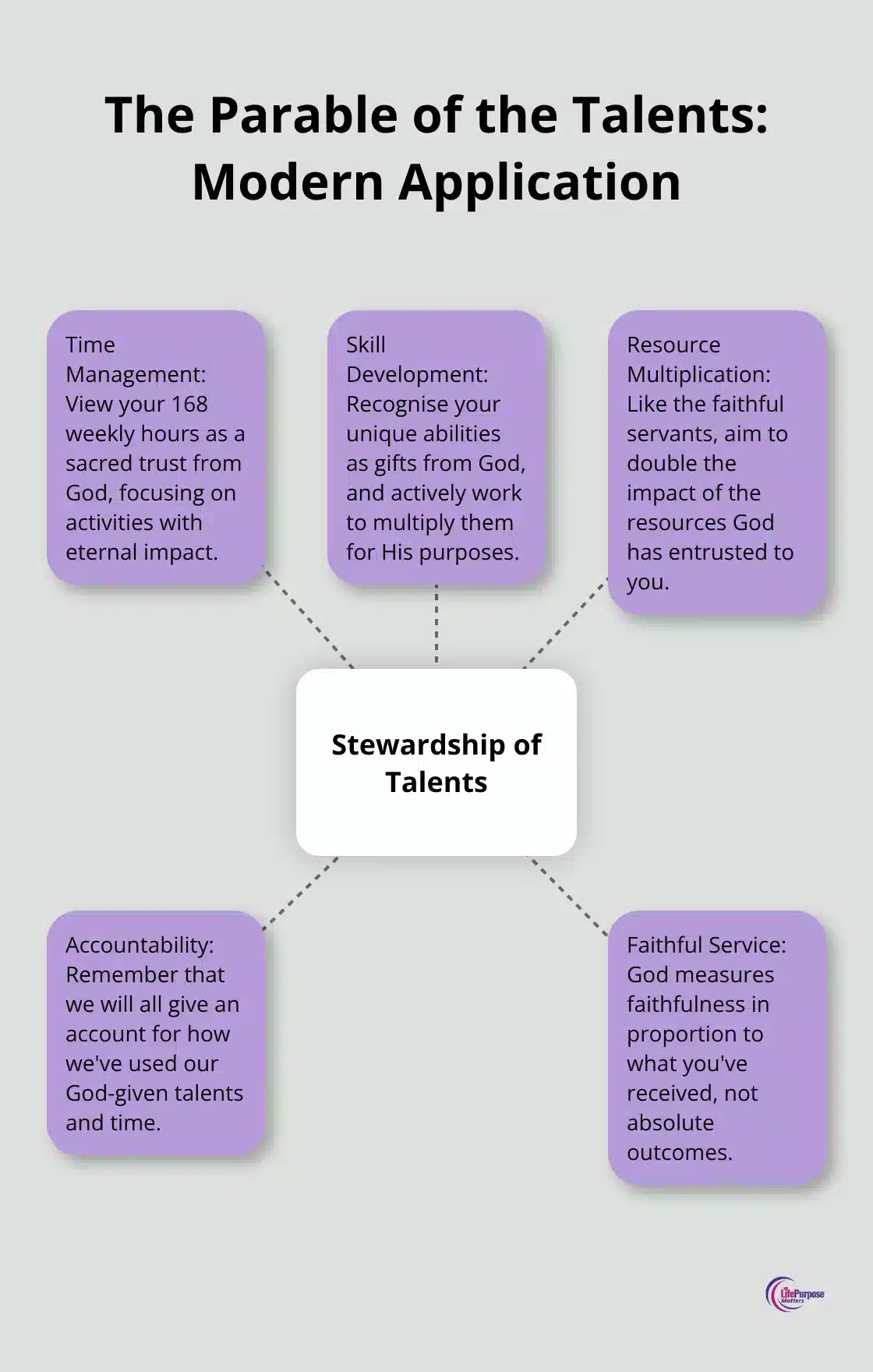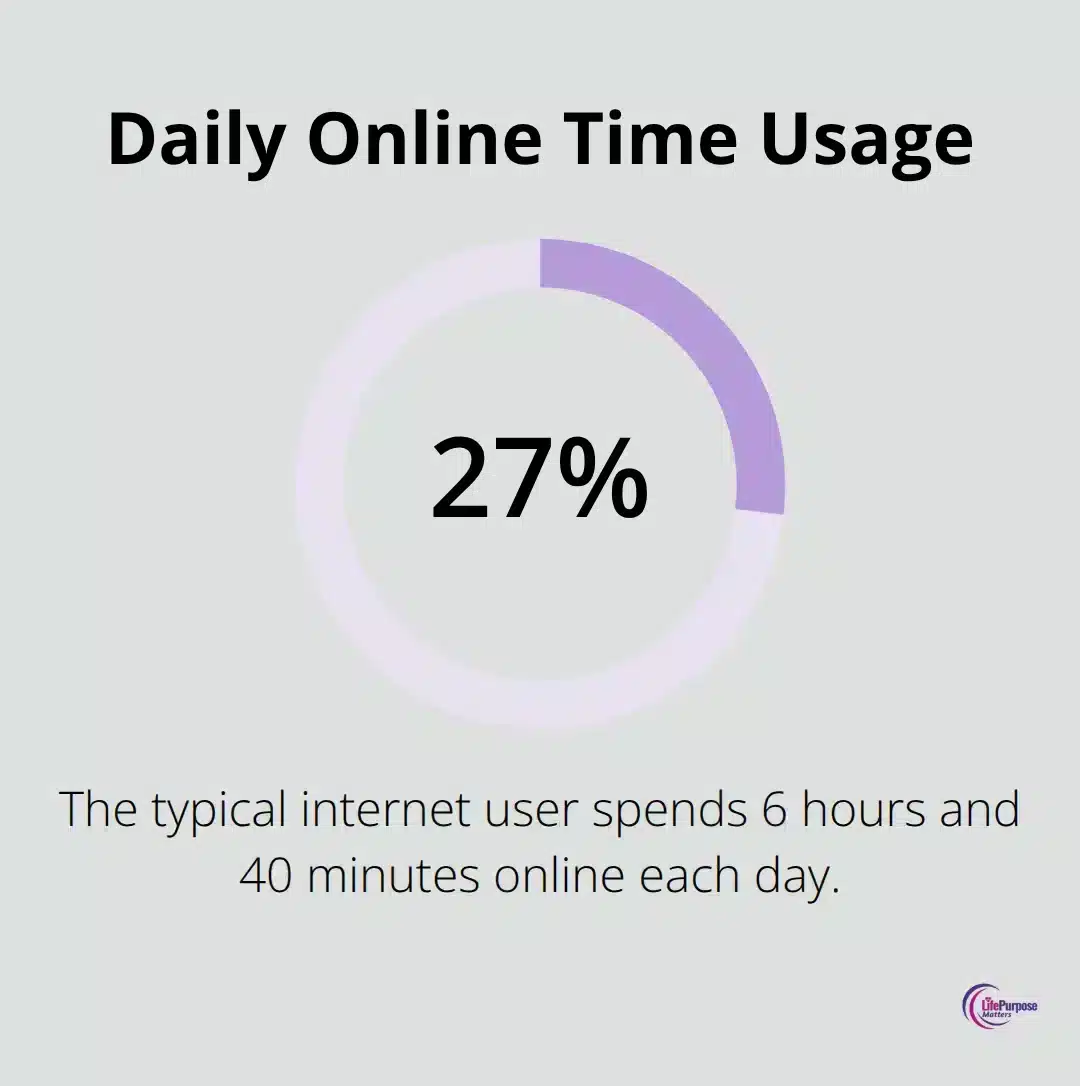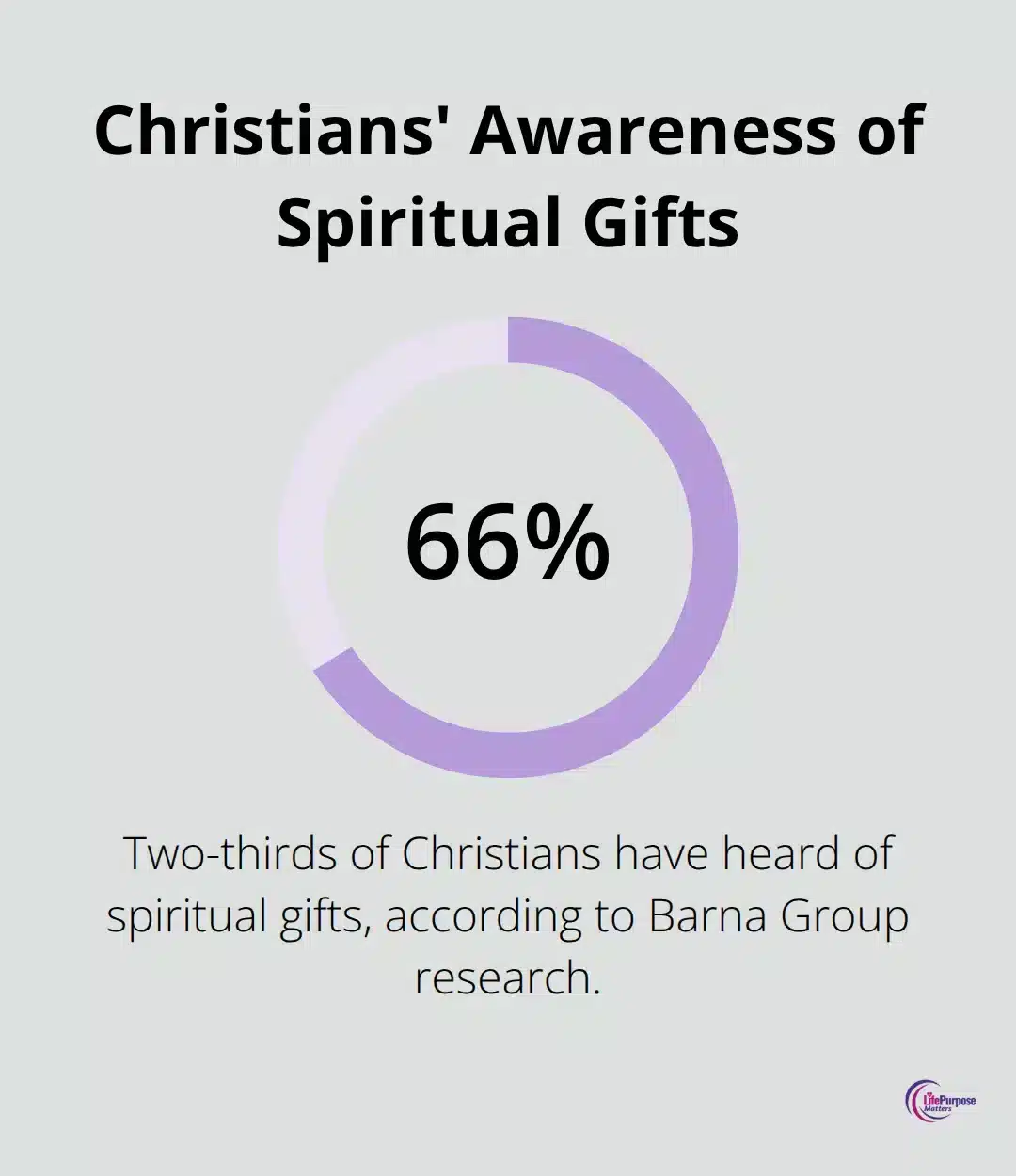Becky stared at her overflowing calendar, wondering how she’d committed to three different volunteer activities on the same Saturday. Becky has always wrestled with her desire to be a good steward, not just of money, but of the gifts of time and talent she’d been given. She realised that “stewarding” meant being intentional, setting aside time each week to plan for her passions, even the small ones like painting, volunteering, and consciously deciding how to use her 24 hours each day rather than letting them slip away. She prayed about her time, realising she was spending it on trivial things and often neglecting her God-given talents. Sound familiar? We at Life Purpose Matters believe biblical stewardship isn’t just about money-it’s about managing every gift God has given you, including your time and talents.
Table of Contents
ToggleWhen you view your daily hours and unique abilities as sacred trusts, everything changes. You stop saying yes to everything and start saying yes to what matters most.
Understanding Biblical Stewardship of Time and Talents
Biblical Foundation for Stewardship Principles
The Bible presents stewardship as active management rather than passive ownership. Psalm 24:1 establishes the foundation: everything belongs to God, which makes us managers of His resources. This perspective shifts your relationship with time and talents from ownership to responsibility.
According to 1 Corinthians 4:2, faithfulness stands as the primary requirement for stewards, not perfection or extraordinary results. James 1:17 reminds us that every good gift comes from above, which includes your ability to organise, teach, or create.
The Parable of the Talents and Its Modern Application
Matthew 25:14-30 reveals God’s expectations for resource multiplication. The master didn’t distribute talents equally – one servant received five, another two, and the third received one. Each faced accountability for their specific allocation.
The servants who doubled their talents received identical praise, which proves that God measures faithfulness in proportion to what you’ve received, not absolute outcomes. The buried talent represents wasted potential, and the master’s response is harsh because unused gifts serve no kingdom purpose.
Recognising Time and Talents as God’s Gifts
Your 168 weekly hours and unique skill set function exactly like the talents in Christ’s parable. Proverbs 3:9 instructs believers to honour God with their possessions, which includes time and abilities. Colossians 3:23-24 commands work as if you serve the Lord directly, which transforms routine tasks into worship.

The Pareto Principle aligns with biblical stewardship – focus 80% of your energy on the 20% of activities that produce eternal impact. 1 Peter 4:10 connects gift usage to grace management, which means your talents serve as channels for God’s blessing to others.
Now that you understand the biblical foundation, let’s explore how to put these principles into practice with your daily schedule.
Practical Steps to Manage Your Time Wisely
The average British checks their phone constantly throughout the day, which breaks down to once every 10 minutes during waking hours. This constant distraction destroys intentional living and prevents you from honouring God with your time. Elon Musk uses time blocking to manage Tesla and SpaceX, scheduling every five-minute increment of his day. You need the same ruthless approach to align your schedule with biblical priorities.
Create Sacred Morning Time
Morning devotions aren’t optional for faithful stewards. Research from Harvard Business School shows that people who wake up early are more proactive and successful. Set your alarm 30 minutes earlier and protect this time from interruptions. No phone, no email, no exceptions.
The Eisenhower Matrix helps you categorise tasks by urgency and importance, but add a third dimension: eternal impact. Tasks that serve others and advance God’s kingdom take priority over urgent but meaningless activities.
Apply the 80/20 Rule to Kingdom Work
Vilfredo Pareto discovered that 80% of results come from 20% of efforts, and this principle applies perfectly to Christian stewardship. Identify which activities produce the greatest spiritual fruit and double down on them.
Tony Robbins developed the Rapid Planning Method around three questions: What do you want? Why do you want it? How will you achieve it? Filter every commitment through these questions with a biblical lens (this transforms routine decisions into worship opportunities).
Eliminate Digital Distractions Ruthlessly
The typical internet user now spends online 6 hours and 40 minutes each day. This represents significant time weekly that could serve God’s purposes instead. Delete social media apps from your phone and check them only from your computer at scheduled times.
Use the Pomodoro Technique with 25-minute focused work sessions followed by 5-minute breaks to maintain concentration on meaningful tasks. Parkinson’s Law states that work expands to fill available time, so set tight deadlines for routine activities and redirect the saved time toward ministry and service.

Now that you’ve structured your time around biblical priorities, the next step involves identifying and developing the unique talents God has given you.
Discovering and Developing Your God-Given Talents
Most Christians struggle to identify their spiritual gifts because they expect dramatic supernatural abilities rather than recognising the ordinary skills God transforms for extraordinary purposes. According to research from the Barna Group, two-thirds of Christians have heard of spiritual gifts, which means many still operate below their divine potential. The spiritual gifts assessment from LifeWay Research shows that administrative abilities, teaching skills, and compassionate service rank as the three most common gifts, not speaking in tongues or miraculous healing.

Start With What You Already Do Well
Your natural abilities provide the foundation for spiritual gifts. If co-workers consistently ask for your help with presentations, you likely possess teaching or communication gifts. When friends seek your advice during crises, mercy or counselling gifts may be present. The Gallup StrengthsFinder assessment reveals that people perform 40 times better when they work within their strengths rather than try to fix weaknesses.
Track patterns over six months. Note which activities energise you versus drain you, which tasks others praise you for completing, and which problems you solve instinctively. Romans 12:6-8 lists seven primary gifts: prophecy, service, teaching, encouragement, giving, leadership, and mercy. First Corinthians 12:8-10 adds wisdom, knowledge, faith, healing, miracles, discernment, tongues, and interpretation. Match your observations against these biblical categories.
Practice Creates Multiplication
The master in Matthew 25 expected servants to multiply their talents through active use, not passive storage. Malcolm Gladwell popularised the 10,000-hour rule for expertise, but research from Florida State University shows that deliberate practice matters more than total hours. Spend 90 minutes daily to develop your strongest gift through focused effort with immediate feedback.
Join Toastmasters if you have speaking gifts, volunteer at homeless shelters if you have mercy gifts, or teach Sunday school if you have teaching abilities. The National Association of Evangelicals reports that regular volunteers develop their spiritual gifts 300% faster than occasional participants.
Set Growth Goals and Track Progress
Set monthly growth goals and track progress through specific metrics like number of people served, skills learned, or positive feedback received. Your talents compound through consistent application rather than sporadic bursts of activity. Create a simple spreadsheet to monitor your development (this helps maintain accountability and motivation).
Try to focus on one primary gift while you develop secondary abilities. The apostle Paul demonstrated multiple gifts but emphasised his calling as an apostle to the Gentiles. Concentration produces better results than scattered efforts across numerous areas.
Final Thoughts
Biblical stewardship transforms ordinary moments into eternal investments. When you manage your time and talents according to God’s design, you create ripple effects that extend far beyond your lifetime. The servant who doubled five talents didn’t just please his master – he demonstrated faithful multiplication that continues to inspire believers today.
Back to Becky’s story: 👉🏾She started by creating a simple daily schedule to include intentional time for prayer and family, and began using her gift for nurturing others by volunteering at a local shelter, seeing her life’s purpose as a way to serve God rather than just her own needs. She found that by actively stewarding her time and talents, her days became more purposeful and filled with a sense of joy and peace, as she was investing in eternal rewards rather than temporary pleasures.
Purpose-driven life means you reject the cultural pressure to fill every moment with activity. Instead, you choose intentional actions that align with your divine call. This requires you to say no to good opportunities so you can say yes to God’s best for your life.
Your next step starts today. Choose one talent you’ve identified and commit to develop it for the next 30 days (set aside specific time blocks for this growth, eliminate one major distraction from your schedule, and find one way to serve others with this gift). We at Life Purpose Matters exist to help you live out your God-given purpose through faith-based encouragement and Christian inspiration.

